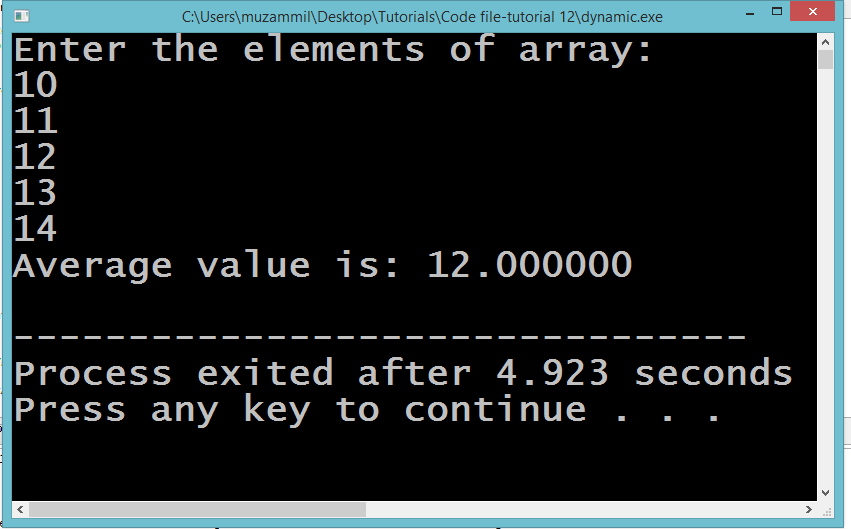Functions And Pointers in C Language
Submitted by Muzammil Muneer on Monday, September 22, 2014 - 22:54.
Functions and Pointers
In this part you will learn: 1. C syntax 2. Pointers 3. Pointers declaration 4. Function arguments as pointers 5. Showing output In this tutorial we will use pointers with functions. Using functions with pointers is same as using functions with any normal variable. The only difference comes in the parameter list and sometimes in the return type as well when we return a pointer or an address of a variable. Calculating Average Open Dev C++ then File > new > source file and start writing the code below.- #include<stdio.h>
- #include<conio.h>
In this program we will make an array and pass it on to a function which has pointers as arguments. First of all we take input from the user in an integer array. As for the start we have set the array size to 5. Then using a for loop we took input in the array.
After that we declared a variable with data type as double. We named the variable with average because our ultimate goal in this program is to calculate the average of all the numbers entered in the array.
Then we called our function getAverage() which calculated the average of the numbers entered in the array. We passed on our array containing numbers and the size of the array. Here you have to know one thing that the name of an array is the base address of its first index. So that is why when we pass array to a function that has pointers in its argument we just write the name of the array. If there was any normal variable we would have placed a ampersand sign with the name of the variable because we need to pass the address of the variable to the pointer in the function parameter.
Then we printed the average on the screen and the programs ends.
- double getAverage(int *arr, int size)
- {
- int i, sum = 0;
- double avg;
- for (i = 0; i < size; ++i)
- {
- sum =sum+ arr[i];
- }
- avg = (double)sum / size;
- return avg;
- }

Add new comment
- 81 views
